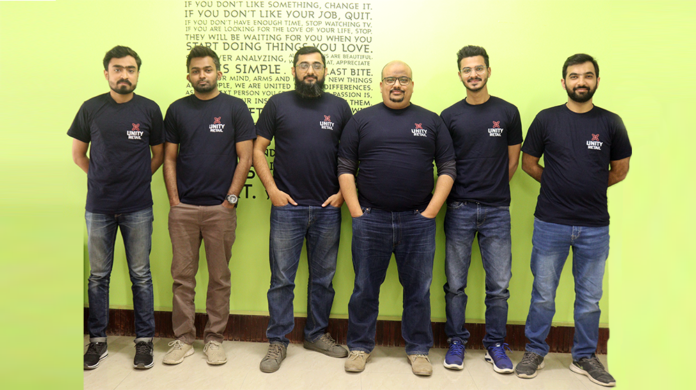In a bid to enable merchants with fulfillment partners, last mile service providers and other value added services, Unity Retail has closed a seed round with Boston Equity Partners.
The undisclosed six-figure investment – a number north of $100,000 – is intended to help the eCommerce technology company focus on growth and product innovations, such as creating a reverse auction mechanism for determining the cheapest or proximate last mile delivery partner.
“We are keen on democratizing e-commerce for Pakistan,” said Shoaib Ahsan, co-founder and chief product officer at Unity Retail. “Our solution allows any local or international player to have out of the box access to the biggest fulfillment network in Pakistan overnight as well as realize best in the business e-commerce operations practices.”
Part of the fifth graduating batch at The Nest I/O, Unity Retail was founded in early 2017 as a marketplace integration company akin to Technifai. As a result of enterprise customer feedback, the business pivoted towards enabling merchants with a single centralized application that integrates with their storefront to sync and process orders. This was launched in mid-2019.
“Empowering merchants to fully leverage the potential of e-commerce is at the core of Unity Retail’s mission,” said Atif Sami, co-founder & CEO of Unity Retail. “The growing interest in our platform with zero marketing spend is a testament to the market demand for our offering and we are very proud to onboard investors that share our vision of democratizing access to e-commerce.”
The business claims to be built on an artificial intelligence enabled auto pilot mode, where orders are processed for confirmation, shipment booking, tracking and cash on delivery (COD) reconciliation. To date, the company claims to have processed upwards of $90 million gross merchandise value for businesses such as Zellbury, Habitt, Tarz, and Mumuso in Pakistan while doing so for Khaadi in Pakistan and the global market.
“Unity Retail is singularly positioned for e-commerce enablement,” said Arif Baigmohamed of Boston Equity Partners. “While the demand for the service is significant at the enterprise level, the real scale is where the platform makes it easy for SMEs and home based entrepreneurs to leverage the e-commerce opportunity to through a plug and play solution. These dynamics have been validated in other markets with players like ShipRocket in India, Easyparcel in south East Asia, and other players in North America.”
According to State Bank of Pakistan (SBP), the eCommerce market size for the year upto Q320 was Rs96 billion, of which 60pc can be assumed to be from COD, making prepayment worth Rs 39 billion over the same period. The industry growth is fuelled by a multitude of factors such as the increasing purchasing power of the middle class, a widening range of products that can be purchased online, the emergence of new digital business models, as well as technological advancements in the delivery segments that allow for instant and time-definite delivery.
The World Economic Forum projects that by 2030, the demand for last-mile-delivery will soar 78pc by 2030, driven by 60pc of people living in cities which propels urbanization. The international NGO further predicts that by the end of 2021, over two billion people around the world will make an online purchase, with 20pc of retail sales coming from eCommerce. Additional forecasts suggest that same-day delivery demand will grow 40pc with the instant delivery market growing 10pc.
Profit speculates that Unity Retail will make technological advancements to shorten delivery times, working with automotive original equipment manufacturers (OEMs) that support the work of parcel drivers with the aid of machine vision object tracking and advanced analytics-based driver apps. The technology company may even enhance the handling of parcels in retailer or logistic company distribution centres through self-learning applications akin.
This natural progression has been reached by Alibaba and JD.com, which are investing heavily in automating the supply chain, with the former investing $15 billion in logistics automation and driverless technology over the next five years.

























